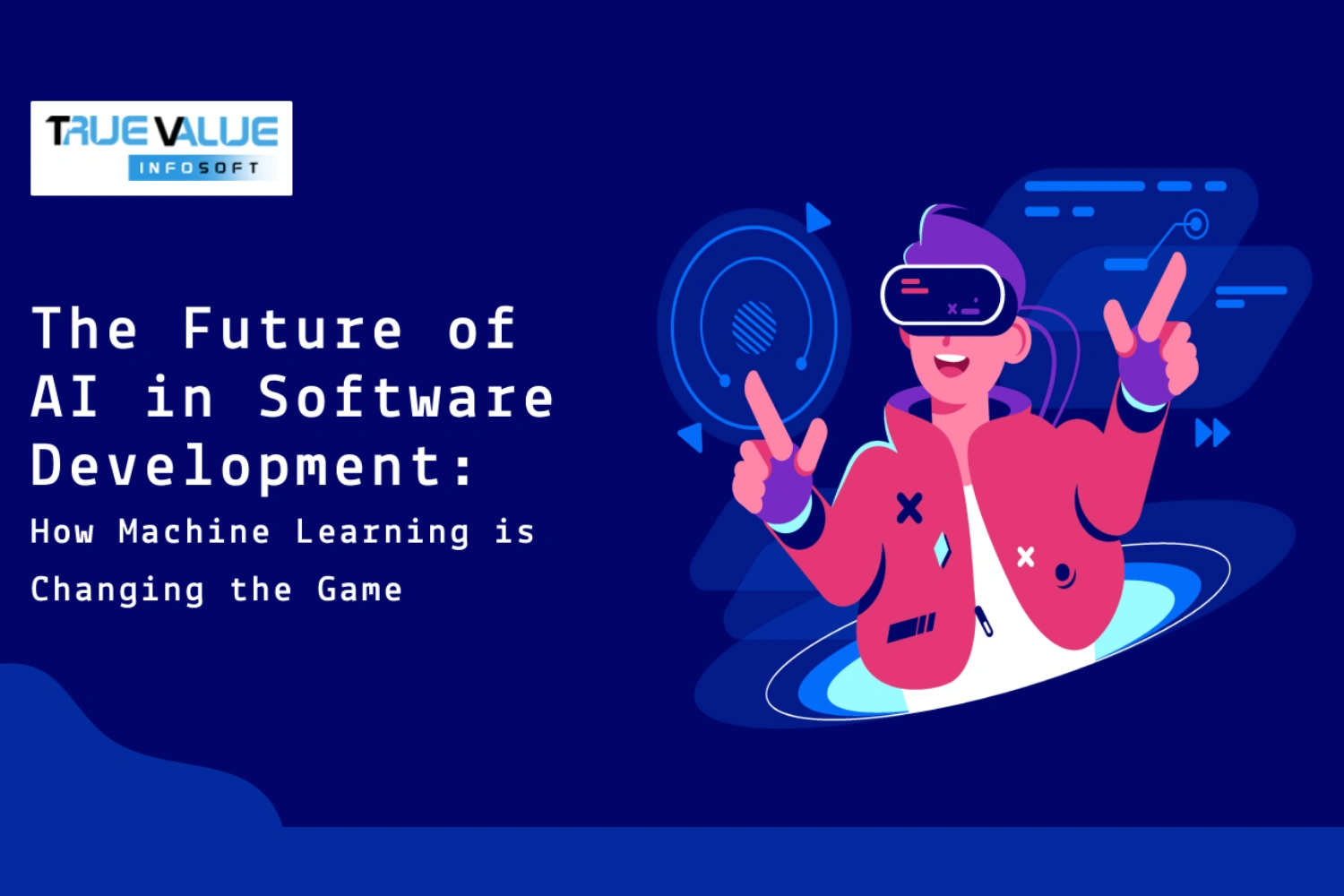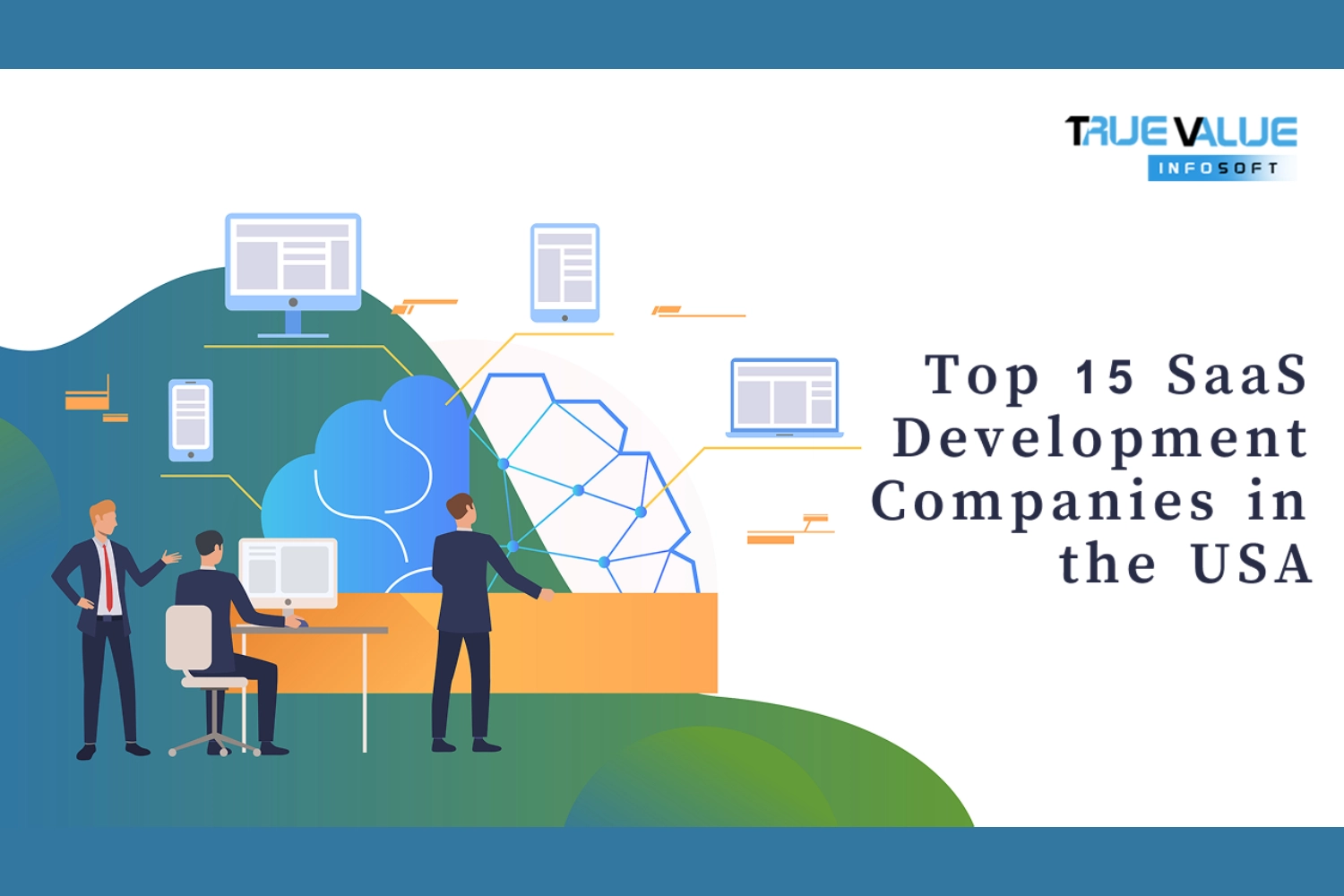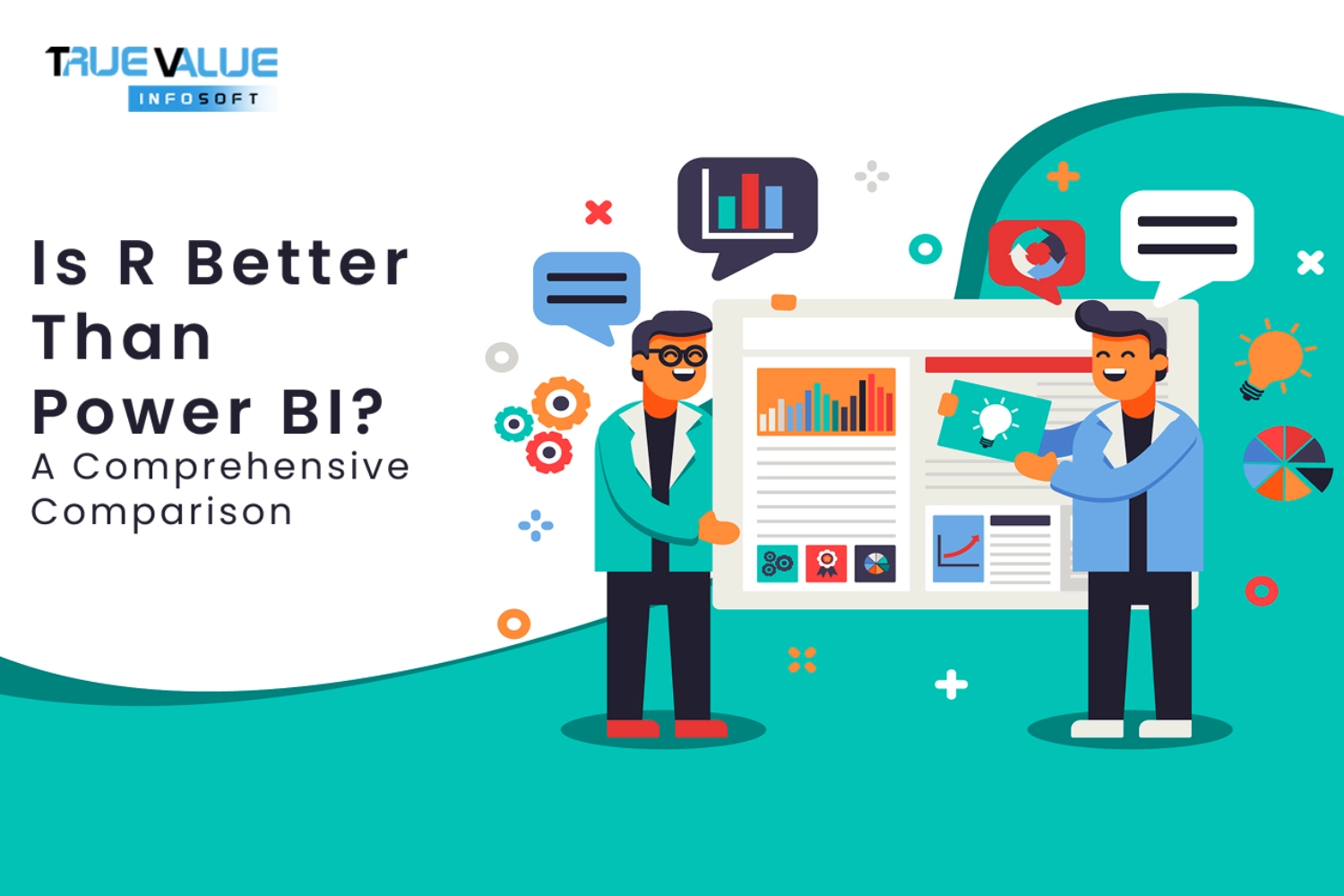Introduction
Have you ever wondered how AI is transforming the way software is built, tested, and deployed? Artificial Intelligence (AI) and Machine Learning (ML) are not just futuristic concepts; they are actively reshaping the software development industry today. According to a report by Grand View Research, the global AI software market is expected to reach $997.77 billion by 2028, growing at a CAGR of 40.2% from 2021 to 2028. This exponential growth highlights the increasing reliance on AI-powered development tools and automation technologies.
True Value Infosoft, a mobile app development company in India, is at the forefront of this revolution, leveraging AI and ML to drive innovation in software solutions. The company focuses on integrating AI-driven automation, predictive analytics, and intelligent decision-making processes to enhance software efficiency and reliability. As businesses seek to adopt AI for improved software development cycles, True Value Infosoft ensures cutting-edge solutions that align with global trends and ethical considerations. In this article, we’ll explore how AI is revolutionizing software development, the tools reshaping the industry, and what businesses can expect in the coming years.
What is Artificial Intelligence (AI)?
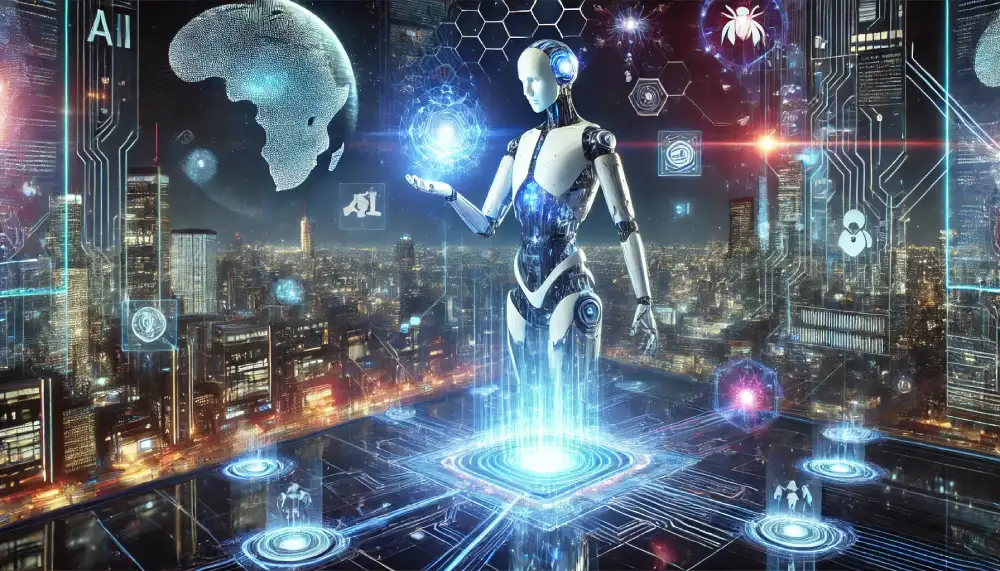
Artificial Intelligence refers to the simulation of human intelligence in machines. AI enables computers to perform tasks that typically require human intelligence, such as problem-solving, language processing, and decision-making. AI is classified into three main types:
- Narrow AI - Focused on performing a single task efficiently (e.g., chatbots, recommendation systems).
- General AI - Theoretical AI that can understand, learn, and apply intelligence across multiple domains like a human.
- Super AI - A hypothetical AI surpassing human intelligence in all aspects.
What is Machine Learning (ML)?
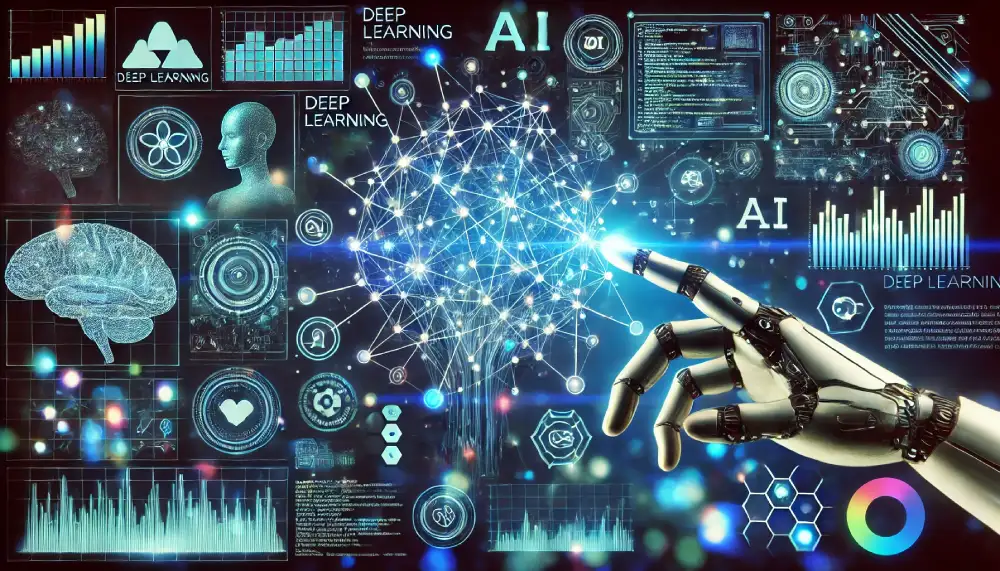
Machine Learning is a subset of AI that enables systems to learn from data and improve over time without explicit programming. It relies on algorithms and statistical models to identify patterns and make predictions. There are three primary types of machine learning:
- Supervised Learning - Trains models using labeled data to predict outcomes (e.g., spam detection, fraud detection).
- Unsupervised Learning - Identifies hidden patterns in unlabeled data (e.g., customer segmentation, anomaly detection).
- Reinforcement Learning - AI agents learn through rewards and penalties (e.g., autonomous driving, robotics).
The Role of AI in Modern Software Development
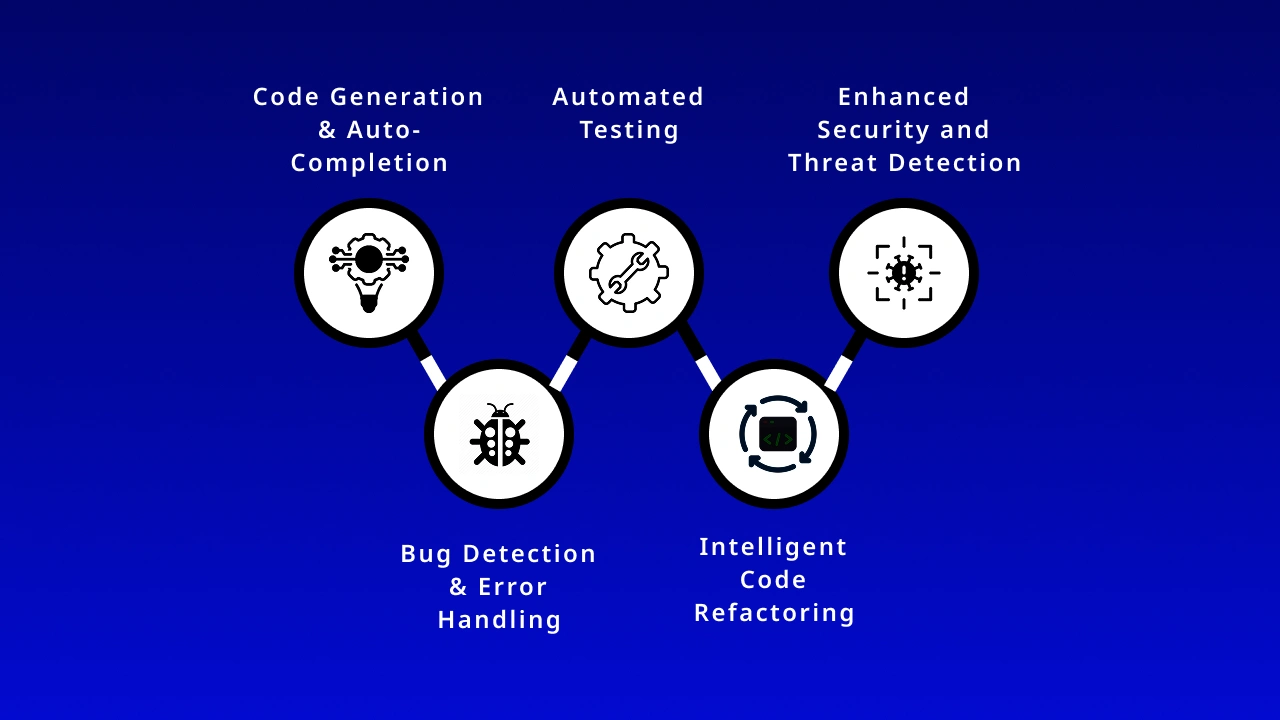
AI is making software development more efficient and accessible. Some of the key areas where AI is influencing development include:
- Code Generation & Auto-Completion
- AI-powered tools like GitHub Copilot and OpenAI Codex assist developers by suggesting code snippets and automating repetitive coding tasks.
- These tools improve productivity by reducing the time spent on boilerplate code.
- Bug Detection & Error Handling
- AI algorithms analyze codebases to detect vulnerabilities and bugs before deployment.
- Tools like DeepCode and SonarQube leverage AI to provide real-time code reviews and suggest fixes.
- Automated Testing
- AI-powered test automation tools reduce the need for manual testing.
- Selenium and Test.ai help generate test cases, identify potential failures, and ensure software reliability.
- Intelligent Code Refactoring
- AI helps optimize code for performance and maintainability.
- Tools like Refact.ai analyze large codebases to suggest improvements while maintaining functionality.
- Enhanced Security and Threat Detection
- AI-driven cybersecurity tools monitor applications for suspicious behavior.
- Platforms like Darktrace use ML models to detect anomalies and mitigate threats.
The Future Use of AI in Software Development
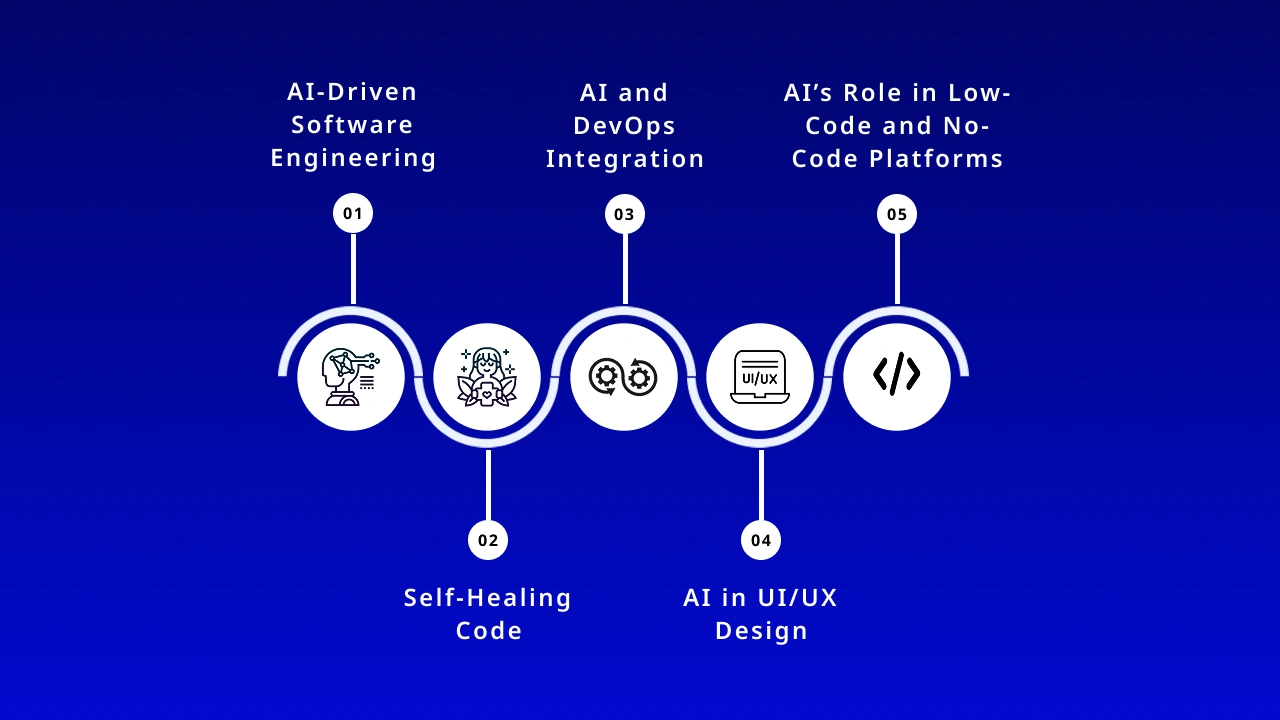
- AI-Driven Software Engineering
- AI will continue automating more aspects of coding, reducing human error.
- Fully AI-generated software may become a reality.
- Self-Healing Code
- AI-powered applications will automatically detect and fix issues in real time.
- Predictive maintenance will minimize system failures.
- AI and DevOps Integration
- AI will optimize DevOps pipelines by predicting deployment failures and automating system monitoring.
- Smart automation will reduce downtime and improve CI/CD processes.
- AI in UI/UX Design
- AI-driven design tools will create intuitive user interfaces based on user behavior and feedback.
- Personalized user experiences will enhance engagement and retention.
- AI’s Role in Low-Code and No-Code Platforms
- AI will enable business users with no coding experience to build complex applications.
- The demand for software engineers may shift towards AI oversight rather than manual coding.
Importance of Machine Learning in the IT Field
Machine Learning plays a crucial role in IT by improving efficiency, automating processes, and enhancing decision-making. Some key benefits include:
- Automation: Reducing manual effort in software development, testing, and deployment.
- Predictive Analytics: Helping businesses anticipate trends, detect fraud, and improve customer experiences.
- Cybersecurity: Identifying threats and responding to security breaches in real-time.
- Enhanced IT Operations: AI-powered IT support chatbots and automated system monitoring improve IT service management.
Why True Value Infosoft is the Best Choice for Machine Learning and AI
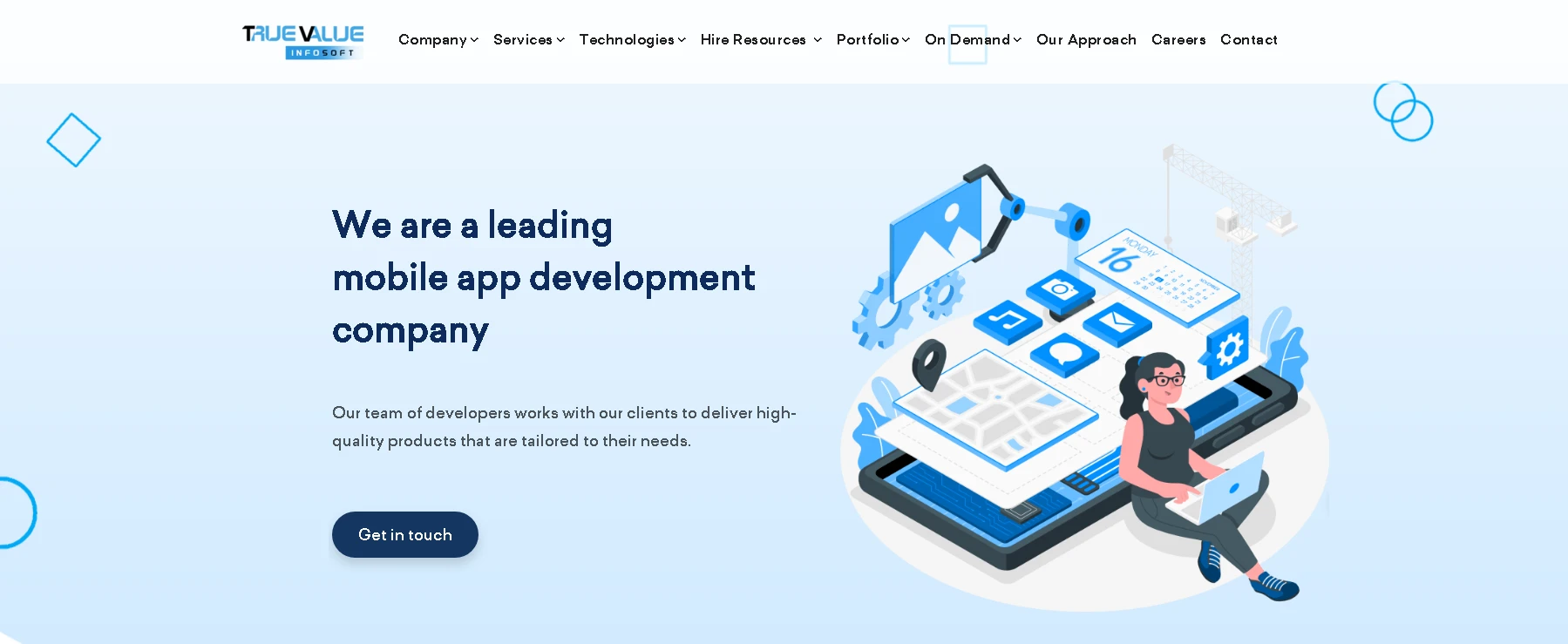
True Value Infosoft is a leading provider of AI and ML solutions, offering:
- Expertise in AI-Driven Software Development: Specialized AI-powered software solutions tailored for businesses.
- Advanced Machine Learning Capabilities: Implementing ML algorithms for predictive analytics, automation, and intelligent decision-making.
- Custom AI Solutions: AI-based chatbots, recommendation systems, and fraud detection models.
- Secure and Scalable AI Solutions: Ensuring robust AI deployment with security-first methodologies.
- Proven Track Record: Successful implementation of AI solutions for various industries.
Case Study: AI Implementation in Software Development
Client: A FinTech Company
- Problem: The client faced challenges in fraud detection and cybersecurity threats.
- Solution: True Value Infosoft integrated an AI-driven fraud detection system using machine learning models.
Outcome:
- 40% reduction in fraudulent transactions
- Improved detection accuracy with real-time alerts.
- Enhanced user experience through secure transactions.
Challenges and Ethical Considerations
Despite AI’s benefits, there are challenges to consider:
- Bias in AI Algorithms: Ensuring fairness in AI-generated code remains a concern.
- Job Displacement: AI may replace certain developer roles, requiring upskilling.
- Security Risks: AI-generated code must be closely monitored for vulnerabilities.
Conclusion
AI is reshaping software development, making it faster, more efficient, and intelligent. While AI-driven development offers numerous benefits, businesses must be mindful of its ethical implications and limitations. As AI continues to evolve, developers and organizations must adapt, leveraging its potential while mitigating risks. The future of software development is AI-powered, and those who embrace it will stay ahead in the digital race.
FAQs
AI is automating repetitive coding tasks, improving code quality through intelligent suggestions, and enhancing testing and debugging processes. It also enables developers to build smarter applications with AI-powered features like natural language processing and predictive analytics.
No, AI is designed to assist, not replace, developers. While AI can automate some coding and testing processes, human creativity, problem-solving, and domain expertise remain essential for designing and maintaining complex software systems.
Machine learning helps software adapt and improve by learning from data. It powers intelligent code assistants, optimizes software performance, and enables predictive analytics for decision-making in applications.
AI-driven tools can identify bugs, suggest fixes, and even automate test case generation. Machine learning models can detect patterns in code to predict potential errors and security vulnerabilities, reducing development time and improving software reliability.
Developers should learn machine learning fundamentals, data science concepts, and AI frameworks like TensorFlow and PyTorch. Additionally, understanding cloud computing, APIs, and ethical AI principles will be valuable for integrating AI into software development.
